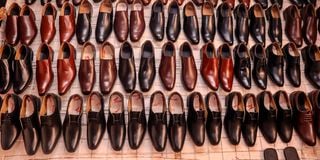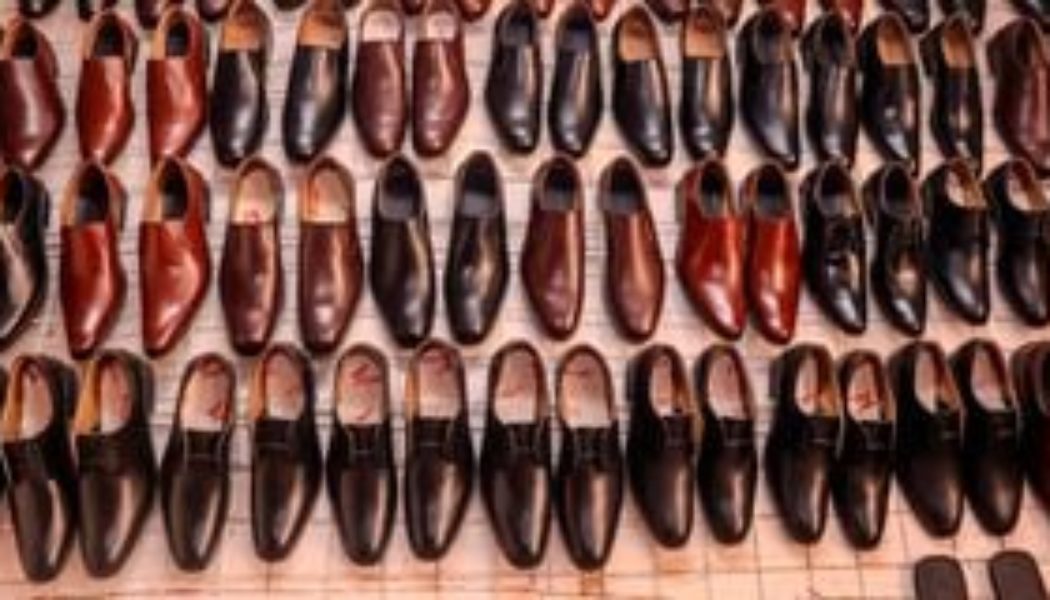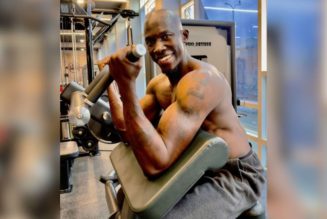About 20 years before Peter Otieno considered shoemaking a business, he looked at it as his destiny—to dignify school-going children in Kibra Constituency, Nairobi with good shoes. This high calling was as much a problem as it was a great mission.
“Shoes have always been expensive. In an area where the constant worry is the very basic needs of life like food and housing, shoes are not at the top of the hierarchy ladder.
I believed then, as I believe now, that shoes can motivate young people to attend school. Education has this great power to change people’s destinies, and I wanted to midwife that by offering high-quality and affordable shoes to my community,” he says.
In the early 80s, Nairobi was a dichotomy when it came to shoemaking.
“You either compromised on the quality and made it affordable or dwelled on quality and unreachable for low-income earners. This explains why most people who schooled during those years have endless legends of their learning years without shoes,” explains Peter.
Calculated risk
To make shoes, he needed to have shoemaking skills. However, he couldn’t afford to go to school. So, he found a job in a city-based shoemaking company, and for the next 19 years, he would learn everything there was to learn about shoes.
In 1999, while still working at the company, he took a leap of faith. He rented out space—no more than 10 square feet—and bought a manually operated sewing machine, an electric grinder, a warmer, and hired two people to help him establish Moya Footwear.
“Setting up the business cost me Sh10,000. This was significant as I had saved the money for many years. In retrospect, it was a calculated risk. While I wiped out my savings to start a business, I was still in employment. This provided a fall-back plan if the venture failed. Now, after many years of doing this, I understand how wise a decision I was making when we started.”
Luckily, the community at the Olympic Area received him like a promised Messiah or, even more aptly, like his biblical namesake Peter, with his keys to eternity—a shoe eternity they had desperately waited for decades.
Shortly after crossing the new millennium, Peter quit his job to fully train his focus on growing his business. He came to the full knowledge that, to be the shoe messiah of Kibra, he couldn’t do it for free. He didn’t have the resources to do it. That informed his first business strategy: quality at affordable prices.

Official leather shoes made at Moya Footwear in Kibera, Nairobi on October 23, 2024.
Photo credit: Bonface Bogita | Nation Media Group
“I understood many things about the shoe culture of my community, the roads on which those shoes walked, and how multifunctional the shoes I wanted to make would be to those who would wear them. These shoes wouldn’t just be school shoes; they would be shoes they’d go to church with, and the shoes they’d play with. Those kinds of shoes needed to be hardy and functional on and for all occasions. So, from the start, we committed to emphasising quality, durability, and versatility.”
While working for his employer, he established contacts with different suppliers of raw materials. This came in handy in times of cashflow crises.
“Starting a business is a chicken and egg situation; you can’t sell if you don’t stock on one hand, while on the other hand, you can’t stock if you are not sure about sales. It is a painstaking wait-to-see who blinks first.”
The suppliers would allow him to take materials and pay later. This way, the business didn’t require an injection of capital from another source.
At his ironclad shop, which has since been expanded to accommodate more workers and stock more shoes, it is easy to tell what his craft and business mean to his community.
His clients have enthroned him with a priestly crown. They stream in to look for solutions. Even at the end of the school calendar, they stop by to check out shoes for their children for the term starting in January 2025.
“We have a “lipa pole pole” (pay on installments) arrangement with some of our clients. They plan ahead by paying for shoes in manageable installments, and upon completion of payment, they collect their shoes,” he says.
Expansion
Moya Footwear has opened two other branches; one in Mathare North and the other in Lang’ata, both in Nairobi, employing seven more people from the initial three.
The children he made shoes for back in 1999 are now adults, which means they don’t need school shoes anymore. This is what informed his decision to diversify.
“We started making shoes for the whole family since we have grown with our clients across their different ages and needs for shoes. We started by adding ladies’ sandals to our production, and then the men came calling. Even in the transition, our shoemaking process is guided by the same principles that have guided us for the last 25 years. I think this has become our greatest selling point; maintaining good quality while remaining affordable.”
300 shoes a month
Every month, they sell about 300 pairs of shoes to different places in the country. “Our reach has grown all thanks to referrals and social media. When we started, we largely banked on the numbers here (Kibra is densely populated).

Peter Otieno Opiyo making leather shoes at Moya Footwear in Kibera, Nairobi on October 23, 2024.
Photo credit: Bonface Bogita | Nation Media Group
“Over the years, I have learned how limiting that can be. So, we have added social media as part of our sales and marketing channel, and as we speak, I have orders from as far as Mombasa for all types of shoes. Courier service providers have made my business easier by having offices not far from our shop. Orders can now be completed within 24 hours from purchase to delivery of the client.”
On turning passion into business, Peter credits commitment as a pathway to success. “Passion is great, but it can’t translate to profit if one lacks commitment and discipline. It would help if you fueled your passion with commitment. Everyone has passion; what sets you apart is the commitment you pay to your passion.”
Paying forward
He has been paying forward by having many apprentices at his shops.
“I understand that I can’t make shoes for the whole world, so I teach other people who can go and establish their businesses elsewhere so that together we can dignify other humans with good shoes,” says the 61-year-old.
On lessons learnt in entrepreneurship, Peter says the first is to learn to embrace risks.
“If you are afraid of taking risks, you won’t Invest. Your money will not work for you,” he says.
Two things he would tell a person contemplating quitting formal employment to start a business is “the best time to quit and start a similar job as your employer is at the prime of your ideas. Ideas have a way of fading away from getting started by someone else.”
Wasn’t there trouble with his former employee, setting up a competing business?
“There wasn’t bad blood. We parted ways amicably. They targeted different markets so I was not a competitor per se,” he says.









